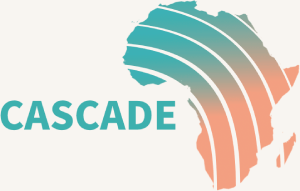Nov 05 2025
/
Heat, Floods, and Urban Resilience: Insights from CASCADE’s Second City Learning Lab in Accra

CASCADE, Cascading Climate and Health Risks in African Cities, works across five cities: Accra, Harare, Kampala, Johannesburg, and Cape Town. Since its launch in 2023, the programme has brought together researchers, policymakers, and communities to better understand how climate and health intersect in African cities and co-develop locally relevant responses. A central part of this work is the City Learning Lab, a space for collaboration, shared reflection, and practical problem-solving.
On 26–27 August 2025, CASCADE held its second City Learning Lab in Accra, hosted by the Centre for Climate Change and Sustainability Studies at the University of Ghana. Building on insights from the first Lab held last year, which identified key climate-health challenges, this year’s gathering focused on two issues that have become impossible to ignore in Accra: flooding and extreme heat.
In recent years, the city has felt the combined weight of rising temperatures and heavier downpours. Flooding continues to damage homes and roads, cut off essential services, and spread disease, while long periods of heat are making life harder for many residents, especially those living in informal settlements or working outdoors without access to cooling or reliable power.

During the Lab, representatives from the National Disaster Management Organization (NADMO) and the Environmental Protection Agency (EPA) shared how their institutions are trying to manage these challenges and what more is needed. NADMO described how Greater Accra’s density and infrastructure gaps make it particularly vulnerable and called for stronger preparedness, clearer coordination, and sustained investment in risk management. EPA researchers presented new modelling that maps how the city might change under future rainfall scenarios. Their findings indicate that short, intense rainstorms, rather than total rainfall amounts, may be key drivers of the floods that now occur with increasing frequency.
As participants listened, the conversation often returned to daily life. People spoke about losing furniture and stock to floods, children missing school, and the stifling heat in small concrete homes. There were examples of community-led solutions, including local clean-ups, awareness campaigns, and improved waste collection, but many said these efforts still feel disconnected from broader city planning. Coordination, communication, and trust were identified as key ingredients for any progress.

One clear message emerged: flooding and heat cannot be treated as separate problems. A flood that knocks out electricity or transport limits people’s ability to cool their homes, reach clinics, or even move safely through the city. Conversely, creating more green spaces, restoring drainage, and improving waste systems can help to tackle both heat and flood risks at once if planned with local communities in mind.
The group also took a step back to consider Ghana’s longer story with climate extremes, from droughts and cholera outbreaks in the 1980s to the deadly floods of recent years. Looking across decades made the challenge feel bigger but also clearer: these are not one-off climate events or disasters; they are signs of deeper systems that need reform.

By the end of the two days, several shared priorities stood out. Participants called for enforcement of land-use regulations in high-risk areas, investment in drainage and waste management, stronger early-warning systems, better public communication, and the inclusion of traditional authorities in land-use decisions. Keeping science connected to local realities and governance remains central to CASCADE’s work, reaffirming the importance of collaboration in building climate-health resilience across African cities.
Watch highlights of the learning lab here.
Authors: Alacia Armstrong, Sampson Dordaa, Obed Okyere and Doreen Lartey
November 2025
